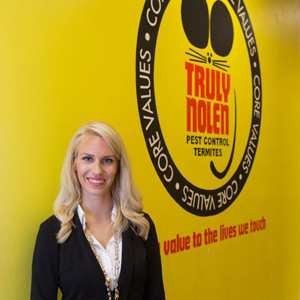
Scarlett Nolen
The foundation of career pathing is having a mentor — or, more specifically, mentors. The importance of mentorship can be a key difference between success and failure. So many of the greats had mentors — Mark Zuckerberg had Steve Jobs, Oprah and Maya Angelou, Plato and Socrates, The Karate Kid and Mr. Miyagi — the list goes on! Mentors come in different forms and can service different purposes. Anthony Tjan, author of Good People: The Only Leadership Decision That Really Matters, describes five distinct types of mentors:
1. The Master of Craft, as the name implies, is depicted as the guru, the sensei, the Yoda, if you will. We can all identify these people early in our careers. Often they are our boss’s boss’s boss — or perhaps an ACE in the pest control industry. For me, this person was my father, Truly David Nolen, who was brilliant beyond measure. Although as wise as he was, and as much knowledge as he acquired throughout his life, he never stopped learning, which made him a master mentor.
2. The Champion of Your Cause is your hype person. This mentor will talk you up to others and connect you with great resources, but also will give it to you straight. Chris Maher, VP of Commercial Operations, and a Truly Nolen partner for the past 40 years, is my champion mentor.
3. The Co-Pilot is the mentor that you can bounce any idea off of or share your thoughts with on a particular project. This mentor is someone you stick around with after the Zoom call is over and share your unfiltered thoughts. I have quite a few Co-Pilots, but Lance Washington, director of franchising and acquisitions, is one worth noting. Washington is a great mentor because he often has an alternative perspective. I think it is wildly valuable to surround yourself with people that can challenge you to grow.
4. The Anchor Mentor is often someone outside of your workspace that grounds you. They are a sounding board beyond specific career goals. This person might be a pastor, rabbi, spouse, coach or family member. I found mine, Bill Dillard, in a leadership group for CEOs called Vistage. He is just as much as a Master Mentor as he is an Anchor Mentor. Dillard often reminds me of my father, in that he has really lived a full life with many great business triumphs, but he always comes back to the core of what is important and how to truly “win” at the game of life.
5. Lastly, the Reverse Mentor is the one that often goes unnoticed. This type of mentor often comes from a younger generation than yourself. In fact, this may even be someone who you are mentoring, and it is up to you to learn from them. Emily Cruz is that person for me. Emily and I have very different backgrounds, but I have found we have so much in common through our industry. She started her pest control career answering phones, then ran our El Paso branch and is now overseeing four locations in Texas and New Mexico. She is someone that is absolutely a force and teaches me to push myself outside my comfort zone. She is a great Reverse Mentor because she is not shy to share her fresh perspective, which is critical to our success as a company.
To grow in the pest control industry, or any facet of life, you should surround yourself with many mentors — one will likely not suffice. As illustrated above, mentors come in different forms and you need to diversify your mentorship board to seek your full potential. If you find yourself in a room full of people that you are done learning from, it is time to change rooms.
Leave A Comment